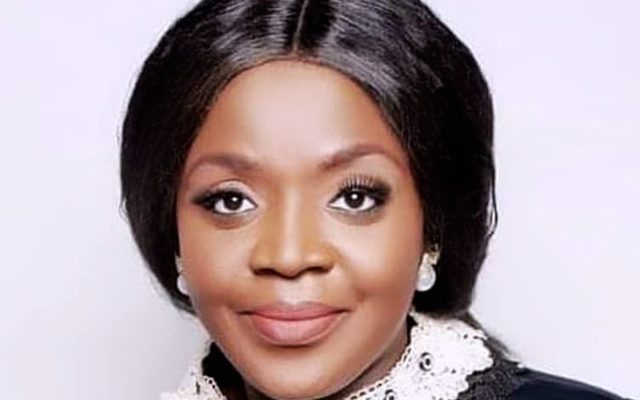A Nigerian lawyer and human rights advocate, Gloria Ballason, has raised the alarm over the rising use of Strategic Lawsuits Against Public Participation (SLAPPs) against journalists by public officials.She described the practice as a tool for harassment, intimidation, and suppression of dissenting voices.
Ballason raised this concern at a webinar organised by Media Foundation for West Africa (MFWA), with the theme, “Silencing Expression: Legal Threat Against Journalists and Activists in West Africa.”
Speaking on the dangers of SLAPPs, Ballason explained that such suits, often initiated by politicians and government officials, are designed not to seek justice but to stifle activists, whistleblowers, and civic-minded citizens.
“These lawsuits weaponise the courts and legal system. They respond to exposure of corruption with defamation suits, to protests against illegal mining with charges of public disturbance, and whistleblowing on fraud with claims of breach of confidentiality,” she stated.
She lamented that the tactic is depleting the ranks of credible voices in civil society, with some activists facing prolonged detention due to unaffordable bail conditions.
“In our country, if you can’t meet stringent bail terms, you end up serving time for a crime you haven’t committed,” she noted. Tracing the origin of the concept to the United States in the early 1980s, Ballason highlighted that over 30 American states now have anti-SLAPP laws, while Canada has enacted similar legislation in Ontario and British Columbia.
“In West Africa, safeguards may exist in law, but they are rarely labelled as anti-SLAPP provisions,” she observed. Ballason listed the negative impacts of SLAPPs as the suppression of free speech, weakening of civic engagement, distortion of credible legal matters, and erosion of democratic dialogue.
She stressed that democracy requires inclusive engagement, adding that without protest, accountability becomes elusive. To counter SLAPPs, she recommended the enactment of anti-SLAPP laws; applying the legal doctrine of abuse of court process; using judicial precedents to dismiss frivolous suits; and ensuring sanctions for malicious legal actions. She urged activists to prioritise truth-telling, maintain personal integrity, gather complete facts, and have legal representation and sureties ready.
“Truth is the most powerful weapon. No matter how long a lie travels, the truth will catch up,” Ballason said. The Executive Director of Media Rights Agenda (MRA), Edetaen Ojo, called for urgent legal reforms and regional solidarity to combat the growing use of SLAPP aimed at silencing journalists and activists.
Ojo warned that SLAPPs, often filed by powerful individuals or corporations, are designed not to seek justice but to intimidate, exhaust, and discourage public interest reporting.
He stressed that such lawsuits, even when dismissed, inflict heavy financial, emotional, and reputational damage on their targets. He underscored the need for self-preservation and basic security measures for media practitioners.
Ojo proposed a multi-pronged strategy, starting with advocacy for anti-SLAPP legislation that allows early dismissal of frivolous suits and compels plaintiffs who lose to cover defendants’ legal costs. He noted that countries like Canada, Australia, and several American states have adopted such laws, but West Africa has yet to follow suit.
Other recommendations included: legal protections for journalists reporting in good faith on matters of public interest; establishment of emergency legal defence funds; formation of networks of trained pro bono lawyers across the region; cross-border cooperation for sharing alerts, defence strategies, and case updates; capacity building for journalists on defamation law, evidence preservation, and legal preparedness.
He also urged media houses and associations to explore collective insurance schemes or litigation risk facilities, cautioning against over-reliance on donor funding, which may not align with local priorities.
“In Nigeria, the media’s role in holding the government accountable is a constitutional pillar of good governance. When that ability is stifled, democracy itself is undermined,” Ojo said.
A senior investigative journalist with The Fourth Estate in Ghana, Seth Joseph Bokpe, shed light on the immense financial and psychological pressures faced by journalists and media organisations embroiled in legal battles.
Bokpe revealed the heavy toll lawsuits take on newsrooms, including budgetary strain, reputational damage, and mental health challenges. He explained that defending lawsuits has become a significant financial burden for the MFWA.
“The cost of all these legal cases is a major line item in our budget. Beyond the monetary impact, journalists also grapple with psychological stress. It is not easy for a journalist to think of going to court because of the anxiety and stress. The fear of facing a judge could lead to burnout,” he noted.
He added that the chilling effect of litigation also influences editorial decisions, with journalists and media houses becoming more cautious to avoid legal repercussions. He, therefore, stressed the importance of resilience. “We cannot stop people from suing us, but we can ensure they don’t win,” he affirmed.







